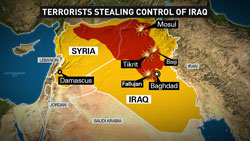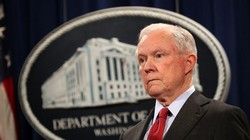On Tuesday, January 24, 75 students from a wide variety of majors came out to attend the University’s second annual screening of the State of the Union address. Organized by Dr. Phillips-Anderson of the Communication Department, the screening had significantly larger student turnout compared to last year. During the screening, a fun filled game of State of the Union bingo was played, using frequently used words that were presented throughout President Obama’s speech.
Throughout the 2012 State of the Union address, President Obama outlined a comprehensive list of his priorities and objectives for the upcoming year. While the speech was predominantly based on economic concerns, the President touched upon many important concerns belonging to the American public.
The President explained his desires to create a blueprint for the future of the United States, including an economy that works for all Americans, one focused on bringing back American manufacturing and promoting homegrown and alternative energy sources.
Some of the other concerns he mentioned included income inequality, unemployment, development of alternate sources of energy and resources, defense spending, free trade, education, the housing crisis, bank bailouts, and the withdrawal of United States armed forces from overseas.
For decades, middle class citizens have been forced to watch their economic security unravel right in front of their eyes. American jobs that were once a source of stable livelihoods and financial security have been shipped overseas. While the upper class watched their paychecks increase and their yearly incomes skyrocket, the majority of Americans dealt with salaries that stayed the same and a cost of living that continued to rise exponentially.
President Obama addressed these issues, claiming that we, as American citizens, need to promote new skills and better education so that all Americans can be prepared to compete in a continually growing global economy.
His policies on education were best exemplified when he expressed that every state should require their students to remain in high school until they turn 18 years of age or earn their diplomas. By requiring students to stay in school, the President is promoting the values of hard work and determination that our country was founded on.
However, Obama said, “When kids do graduate, the most daunting challenge can be the cost of college. At a time when Americans owe more in tuition debt than credit card debt, this Congress needs to stop the interest rates on student loans from doubling in July.”
Obama demanded that states make higher education a top priority in their agendas. Thus, under his administration, a tuition tax credit will be made in order to save the middle class families of America. He proposed that if universities continue to raise their tuitions each year, they would no longer be able to receive taxpayer funding.
“Higher education can’t be a luxury. It is an economic imperative that every family in America should be able to afford,” Obama said.
However, the President announced that we must also remember the hundreds of thousands of talented, hardworking students in this country that face the challenge of not yet being American citizens. Brought here as small children, the President explained, these people are Americans through and through, yet are forced to live everyday with the threat of deportation.
Conversely, the President said that, “I believe as strongly as ever that we should take on illegal immigration. That’s why my administration has put more boots on the border than ever before. That’s why there are fewer illegal crossings than when I took office.”
However, he explained that if he and Congress cannot develop a comprehensive plan regarding this issue, they must “at least agree to stop expelling responsible young people who want to staff our labs, start new businesses, and defend this country. Send me a law that gives them the chance to earn their citizenship; I will sign it right away,” Obama said.
Ryan Franconi, junior Political Science major at the University expressed his feelings towards immigration. Like many Americans, Franconi believes that it is “unfair to deport eager young people who want to be here and want to gain an education.” Similar to President Obama’s beliefs, Franconi continued by saying, “I believe in a pathway to citizenship.”
Another issue that the President addressed was a need for new emphasis on American manufacturing. While thousands of Americans remain unemployed, Obama proposed that we must refocus our corporate tax structure to reward businesses that work to keep jobs in America rather than outsourcing their work overseas, and ending tax incentives for corporations that still continue to outsource. “My message is simple. It is time to stop rewarding businesses that ship jobs overseas and start rewarding companies that create jobs right here in America. Send me these tax reforms, and I will sign them right away,” Obama said.
Throughout the President’s speech, he addressed several issues, bills, and reforms in which he requested Congress to take action. His priorities were not strictly economically based, however. President Obama also explained how we must start to promote homegrown energy by finding new ways to develop natural gas reserves within the United States. This too, he believes, will allow for new ways of creating clean energy jobs in America.
The President ended his speech memorably, by showing his pride in American citizens, along with a devout sense of nationalism. “Each time I look at that flag, I’m reminded that our destiny is stitched together like those fifty stars and those thirteen stripes. No one built this country on their own. This nation is great because we built it together. This nation is great because we worked as a team. This nation is great because we get each other’s backs,” Obama announced.
President Obama went on to say that if we, as the American public, hold to the truths that we can work together in a common bond of nationalism, pride, and teamwork, that “in this moment of trial, there is no challenge too great; no mission too hard. As long as we’re joined in common purpose, as long as we maintain our common resolve, our journey moves forward, and our future is hopeful, and the state of our union will always be strong.”
The conclusion was not the only part of the President’s speech that resounded within millions of Americans. Throughout the address, President Obama used military analogies, implying that the American people can learn a thing or two from our militaries ability to work together in order to achieve their goals.
“For the first time in nine years, there are no Americans fighting in Iraq. For the first time in two decades, Osama bin Laden is not a threat to this country. Most of Al Qaida’s top lieutenants have been defeated. The Taliban’s momentum has been broken. And some troops in Afghanistan have begun to come home,” Obama said.
He went on to explain how these achievements are a “testament to the courage, selflessness, and teamwork of America’s armed forces […] Imagine what we could accomplish if we followed their example.”
Dr. Phillip-Sanderson of the Communication Department organized the live screening of this year’s address and explained that this year’s screening at the University nearly doubled in size from last year. Also, he was surprised that there was such student turnout, especially considering that it is the beginning of the semester.
Phillip-Sanderson also shared his feelings about this year’s State of the Union address. He explained that he liked how the President used military analogies within the introduction and conclusion of his speech, all surrounded around the idea that Americans should follow the military’s powerful examples. Phillip-Sanderson similarly expressed how he liked how the President “acknowledged that it will be difficult to enact those proposals.”
However, he thought the speech was a bit scattered and lacked coherent theme. “I wish that he said a little bit more about the Arab Spring and was a bit clearer in explaining his policies concerning it.” Similarly, Phillip-Sanderson expressed that while President Obama proposed that universities need to stop raising tuition costs or they will no longer receive government funding, “the President did not come up with any proposals as to how we can do that.”



